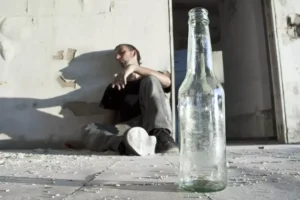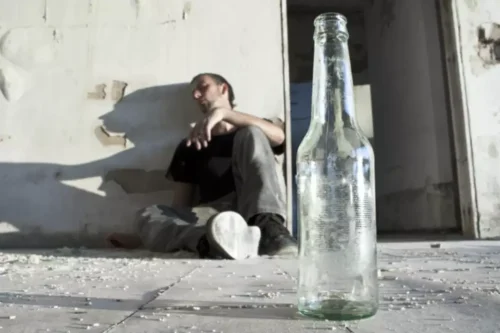
Support groups play a big role in aftercare by Drug rehabilitation giving people a sense of community and connection. These groups are a safe space where members can share experiences, learn from each other, and stay motivated. Whether faith-based or secular, support groups help people stay focused on their recovery goals and create lasting bonds with others who understand their journey. For people transitioning out of a rehab center, sober living homes can be a great stepping stone. Think of it like learning to ride a bike with training wheels—you’re starting to go on your own, but there’s still some support to keep you steady. Sober living homes offer a safe, supportive environment, especially for those who may not have a stable place to go or lack strong support outside of treatment.

What to look for in an alcohol rehab program
CBT and other types of therapy are less frequently-encountered than motivational interviews. In the two interventions we identified where CBT was utilized, it was always combined with another intervention strategy. CBT may thus be used in combination with motivational interviews in order to prevent relapse 33, or combined with medication to promote abstinence 57. Boisvert et al70 established and evaluated the effectiveness of a peer support community program. The peer support program was implemented by an occupational therapist and addiction professional following SAMHSA (Substance Abuse and Mental Health Services Administration) recovery community model.
TIP 64: Incorporating Peer Support Into Substance Use Disorder Treatment Services
Ask different programs if they offer sliding-scale fees—some programs may offer lower prices or payment plans for individuals without health insurance. AUD is characterized by an impaired ability to stop or control alcohol use despite adverse social, occupational, or health consequences. Health care providers diagnose AUD when a person has two or more of the symptoms listed below. AUD can be mild (the presence of two to three symptoms), moderate (the presence of four to five symptoms), or severe (the presence of six or more symptoms). At the time, advocates for people struggling with addiction said funding religious-based programs is not in itself a bad thing, but it needed to be balanced with secular programs.
Minority Fellowship Program (MFP)
- Such programs generally involve psychological support 51, 53, 54 or skills development initiatives 28, 55 for alcohol users; this category also includes a number of training courses for healthcare professionals 34.
- Today, aftercare programs are more comprehensive than ever, offering a range of services like counseling, support groups, and sober living options.
- Recovery continues even after rehab ends, and aftercare offers steady support to help keep your balance as you step back into everyday life.
- Three medications are currently approved in the United States to help people stop or reduce their drinking and prevent a return to drinking.
- “Currently, several government departments appear to refer vulnerable people to Village of Hope while taking no responsibility for oversight to avoid exploitation,” Lamrock said, noting that attending Village of Hope includes unpaid labour and supervised living conditions.
- Thus, it can be included among the objectives targeted by users within harm reduction interventions.
Even if you don’t have insurance, many programs have a total cost of less than $1,000, including all treatments for the duration of your program. For someone people, an intensive inpatient program might be the right first step toward sobriety. For others, =https://ecosoberhouse.com/ an outpatient program that allows flexibility can be a smart choice.
- Another major factor that will affect the cost is your health insurance policy.
- The counselor provides information about the individual’s drinking pattern and potential risks.
- Meetings involved discussions on principles of a peer support recovery or peer-driven community between the therapist and residents.
- You get to maintain more of your typical daily routine, whether that involves work or school, but you still benefit from regular, structured support.
In addition, mentees significantly reduced their alcohol and drug use from baseline to termination and the majority of mentors sustained abstinence. Fidelity measures indicated that mentors adhered to the delivery of treatment. Peer support can be defined as the process of giving and receiving nonprofessional, nonclinical assistance from individuals with similar conditions or circumstances to achieve long-term recovery from psychiatric, alcohol, and/or other drug-related problems. This article reports the results of a literature review that was undertaken to assess the effects of peer support groups, one aspect of peer support services, in the treatment of addiction. Alcohol Case Management (ACM) and Chronic Case Management (CCM) also seek to coordinate and adapt the care system to better meet the needs of alcohol-dependent people. ACM aims to tackle one of the priorities of the health system, namely facilitating access to care and social services for patients with alcohol use disorder.

Aftercare doesn’t have a set timeline—it lasts as long as a person needs support. Some people may continue aftercare for a few months, while others might stay involved for years. The intensity of aftercare can change over time, too, adjusting as someone feels more confident in their sobriety. Ultimately, aftercare is about creating lasting habits and connections that support a healthy, sober lifestyle. Each piece of an aftercare plan plays a role in building a life free from addiction. Taking time to create this plan increases the chances of staying healthy and resilient.


Such programs generally involve psychological support 51, 53, 54 or skills development initiatives 28, 55 for alcohol users; this category also Alcoholism Treatment Program includes a number of training courses for healthcare professionals 34. For instance, Darker and al. 54 focus on a brief intervention targeting the reduction of harmful alcohol consumption in opiate-dependent methadone-maintained patients. Beyond substance use, peer support groups offer unique advantages to engaging our historically difficult-to-engage populations. Another study conducted by Tracy et al21 investigated a new intervention, mentorship for alcohol problems (MAPs), that included peer support groups and one-to-one mentorship services for individuals with alcohol-use disorders in community-treatment programs.
- This form of therapy is focused on identifying the feelings and situations (called “cues”) that contribute to heavy drinking and managing stress that can lead to a return to drinking.
- Some interventions can be described as mixed, combining in-person and remote forms of support.
- Once you decide on the level of treatment, you’ll then need to find a local rehab center or treatment program that works for you.
We’ll help you learn how to find higher-quality, science-backed care that can raise your chances for success. Healthcare professionals now provide up-to-date treatments backed by science. Care is offered at different levels of intensity in a variety of settings.
